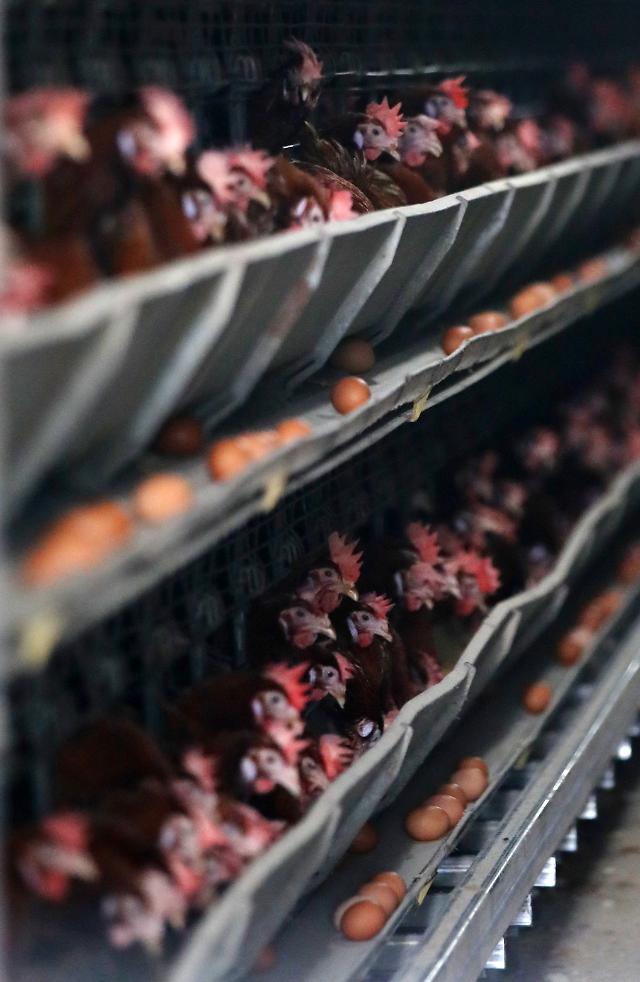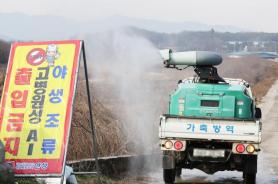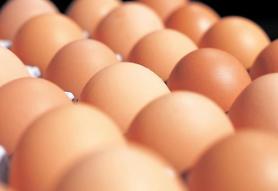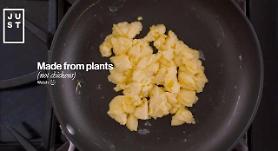
[Yonhap Photo]
South Korean President Moon Jae-in, an animal lover, fueled arguments about cage-free livestock farming and apologized for a widespread health scare caused by the presence of eggs tainted with banned insecticides.
Demand for cage-free eggs is on the rise among South Korean consumers who have seen a steady rise in egg prices promoted by the perennial outbreak of bird flu that left a record number of chickens culled this year.
Animal rights activists and experts have called for a change in the production of eggs produced by hens kept in battery cages that restrict movement and crowd birds together, but cost-conscious producers are reluctant to switch to cage-free housing, citing profitability.
At a cabinet meeting Monday, Moon suggested South Korea should bring "fundamental changes" to its heavy dependence on integrated or caged livestock farming, describing cage-free farming as an effective tool to curb animal diseases such as bird flu.
"First of all, we need fundamental measures to improve the livestock industry (acclimatized) with factory, overcrowded and confined breeding," Moon said. "We should think about animal welfare and livestock hygiene in our breeding environment."
Moon apologized for causing public concern with eggs tainted with fipronil, a banned insecticide that sparked a health scare across Europe. Coupled with a temporary ban on egg shipments, the government has launched a quick nationwide inspection of more than 1,200 farms.
As of early Monday, eggs produced by 52 farms were tainted with banned insecticides or harmful substances exceeding permissible levels, the agriculture ministry said.
Egg consumption shrank sharply and government officials were accused of lax safety standards and mismanagement. Prime Minister Lee Nak-yon has urged food safety regulators and agriculture officials to abandon their "passive" attitude in implementing regulations on the production and distribution of banned insecticides.
"The desire of human beings to eat meat at cheap prices is the root of all problems," the Korea Association for Animal Protection said in a statement, arguing that caged hens are vulnerable to contagious diseases and carry a high risk of contamination.
More than 90 percent of eggs have been produced from hens kept in battery cages, it said, accusing policymakers of caring much for the interests of producers.
For animal welfare, hens should be given freedom to carry out natural behaviors such as ranging, dust bathing, nesting and perching. However, cage-free farming does not always mean the chickens are allowed to run free on the range because other types of housing are widely introduced in other countries.
Copyright ⓒ Aju Press All rights reserved.



